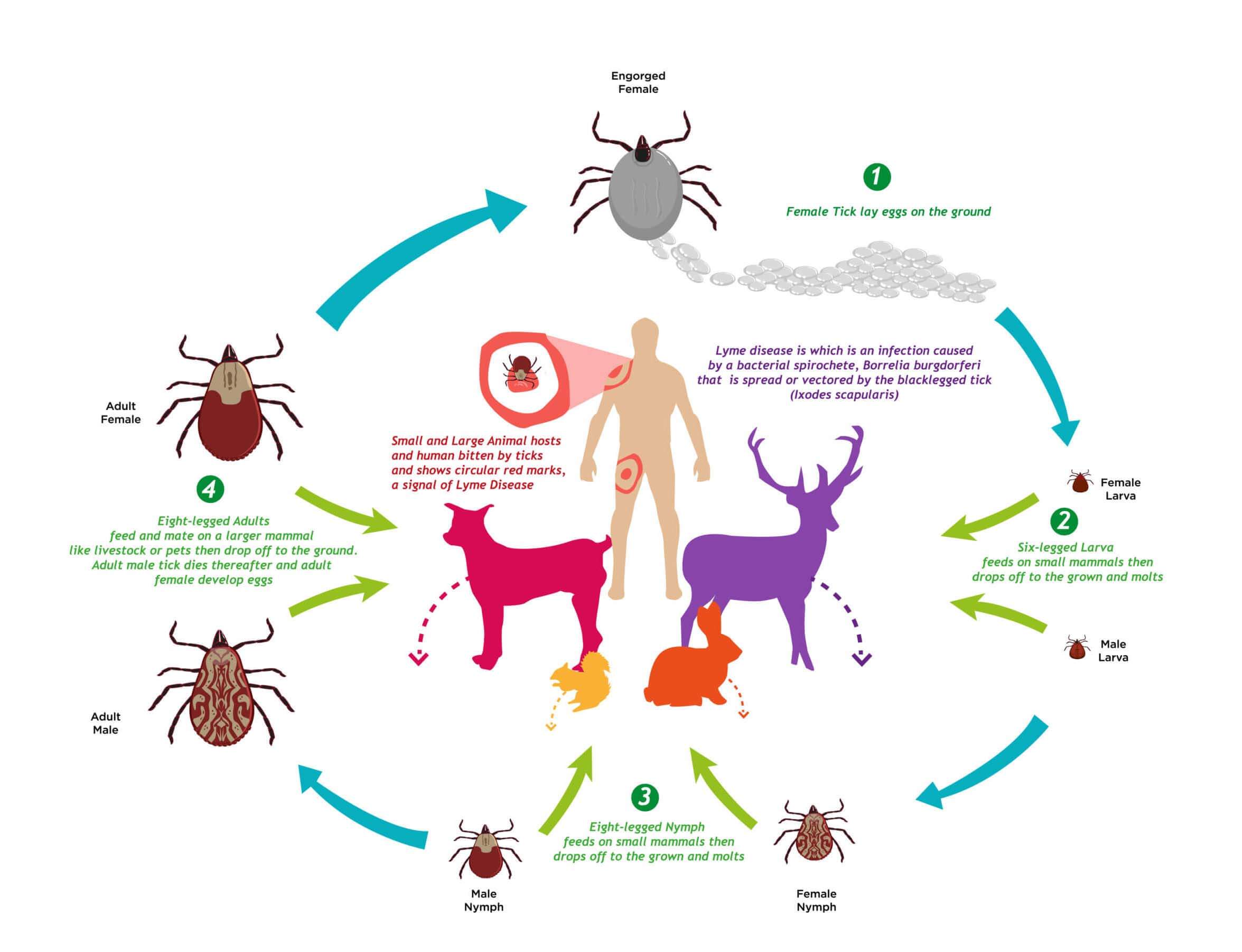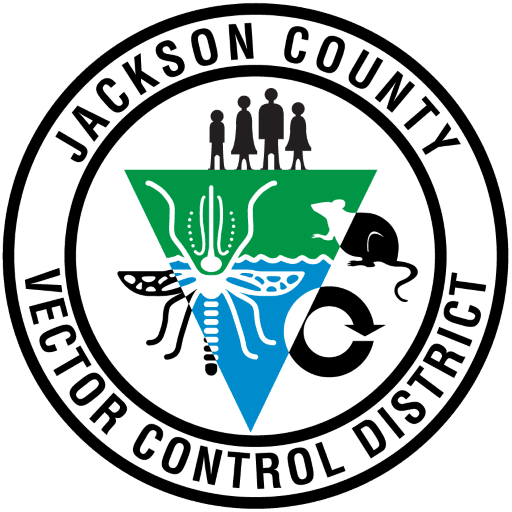Most ticks go through four life stages: egg, larva, nymph, and adult. Ticks must take a blood meal at each life stage to survive to adulthood. Some species use a single host for all life stages while others, like our local species, will use a different host at each life stage. These types of ticks are known as “3 host ticks”.

To find hosts, ticks wait on the tips of grasses and vegetation with their forelegs extended. This behavior is known as “questing”. Ticks detect body odors, heat, moisture, and vibrations of passing animals and latch on when a host brushes by. Once a tick attaches to a host, it will usually start feeding within a few hours. The tick will puncture the skin with its hypostome, or feeding tube, and suck blood slowly for a few days. Many ticks secrete a concrete-like substance through their mouthparts that helps them stay attached during feeding. A tick’s saliva also has chemical compounds that act as an anesthetic during feeding. This helps prevent the host from feeling the bite and better enable the tick to feed for longer periods. If the tick is carrying a pathogen, that pathogen can be transmitted to the host through the saliva of the tick as it feeds.
